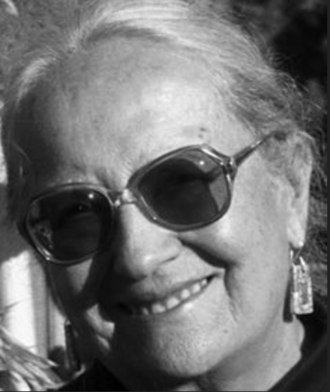Discover Your Roots
SIGN UPDiscover Your Roots
SIGN UPFelicitas is a female name of German origin, meaning "Fortune" and "Happiness". In ancient Roman culture, Felicitas was associated with divinely inspired productivity, blessedness, and luck, and was even cultivated as a goddess. The name derives from the Latin adjective "felix", signifying "fruitful, blessed, happy, lucky". In religious and agricultural contexts, Felicitas expressed the close connection between religion and productivity. It was also considered a quality expressing harmony or peace with the divine world. The name continued to play an important role in Imperial cult and was frequently portrayed on coins as a symbol of the wealth and prosperity of the Roman Empire. The English word "felicity" is derived from Felicitas. As a virtue, Felicitas represented being blessed and under the protection or favor of the gods. The name is associated with divine favor, prosperity, and happiness, making it a powerful and positive choice for a girl's name.

Felicitas Gómez Martínez de Méndez, born in Puerto Rico, was a prominent figure in the American civil rights movement. Alongside her husband, Gonzalo, she led a groundbreaking educational battle that revolutionized California and set a significant legal precedent for ending segregation in the United States. Their pivotal desegregation case, Mendez v. Westminster, paved the way for meaningful integration and public-school reform. Felicitas and her family faced discrimination as they moved from Puerto Rico to the U.S. mainland, experiencing racialization as "black" and "Mexican." Their children attended a segregated school, prompting the Mendez couple to initiate a community battle leading to a historic lawsuit against four Orange County school districts. Despite initial challenges, the ruling in their favor by Judge Paul J. McCormick marked a pivotal victory. The appellate case garnered support from various organizations, including the ACLU, NAACP, and renowned figure Thurgood Marshall. Felicitas Gómez Martínez de Méndez's impactful activism left an indelible mark on the fight against segregation, leaving a lasting legacy in the American civil rights movement.

Felicitas D. Goodman (January 30, 1914 – March 30, 2005) was a Hungarian-born American linguist and anthropologist known for her expertise in linguistics and anthropology. Her extensive research focused on Ecstatic Trance Postures and the phenomenon of speaking in tongues in Pentecostal congregations in Mexico. Goodman authored notable works including "Speaking in Tongues" and "Where the Spirits Ride the Wind: Trance Journeys and Other Ecstatic Experiences," garnering recognition in the United States and Germany. In 1978, she established The Cuyamungue Institute in New Mexico to further delve into altered states of consciousness and conduct workshops. Her contributions gained popularity among New Age and Neoshaman practitioners, scholars, and enthusiasts, particularly in the US and Germany. Before her passing, Goodman had authored over 40 articles and more than seven books, with her work even inspiring the film "The Exorcism of Emily Rose." Her daughter, Susan G. Josephson, commemorated her legacy with a comic book biography titled "Pueblo Spirits: in the life of Felicitas D. Goodman" in 2014.

Felicitas Córdova Apodaca (March 6, 1912 – December 26, 1997) was a prominent American advocate for women and children, as well as a dedicated community activist. Born in Manuel Doblado, Mexico, she spent her formative years in the vicinity of the ASARCO smelter outside El Paso, Texas, where her father worked. Apodaca's mother, Irene Santos Cordova, was a courageous midwife who continued her work even during the Mexican Revolution. After marrying Juan Apodaca in 1937, Felicitas dedicated herself to homemaking for thirteen years before becoming actively involved in organizations such as Planned Parenthood. She moved to El Monte, California, and made significant contributions to the Community Service Organization (CSO), organizing fundraisers, engaging in activities for youth, and establishing a food pantry. Apodaca also provided crucial paralegal assistance to Mexican immigrants in the United States. Her impactful work continues to inspire and influence advocacy efforts today.This summary provides a comprehensive overview of Felicitas Córdova Apodaca's life, highlighting her early years, family background, and significant contributions to women's and children's advocacy, as well as her community activism.


All images displayed on this page are sourced from Wikipedia or Wikimedia Commons.We use these images under their respective Creative Commons or public domain licenses. Wherever applicable, author attributions and license information are provided. If you believe an image is used incorrectly or outside its license terms, please contact us so that we can review and correct the issue.